The intricacies of the legal landscape can often be daunting for the uninitiated. Navigating the complexities of civil litigation, particularly its numerous procedural rules and legal nuances, can present a genuine challenge. To help demystify this complex area, we have created a comprehensive guide to civil litigation in British Columbia.
With that in mind, this guide aims to provide a thorough understanding of the civil litigation system’s structure, processes, and key components, focusing specifically on the context of British Columbia’s distinct legal environment.
Whether you are a seasoned lawyer seeking to enhance your understanding of British Columbia’s legal landscape, a law student aiming to familiarise yourself with the practical aspects of civil litigation, or an individual involved in a legal dispute, this guide is tailored to meet your needs.
Understanding the Civil Litigation Process
The civil litigation process in British Columbia involves several important stages, each of which plays a crucial role in resolving disputes between individuals, corporations, or other entities. These stages ensure that proper procedures are followed and that both parties can present their respective cases. Here’s a detailed overview of the entire process:
1. Initial Assessment and Claim Filing
Before pursuing civil litigation, assessing if your case is eligible for legal action and falls within the limitations period set by British Columbia’s Limitation Act is essential. This period typically ranges from two to six years, depending on the nature of the claim. After determining your case’s eligibility, you may file a Notice of Claim, also known as a Statement of Claim, with the appropriate BC court. At this stage, having an experienced lawyer like those at Pathfinder Law can help ensure that your claims are drafted effectively to maximize your chances of success.
2. Serving the Notice of Claim
Once the claim is filed, it must be served on the defendant(s) within 12 months. Service typically involves delivering the document in person or sending it to the defendant’s residence or place of business. There are specific legal requirements for how a Notice of Claim must be served, so it’s important to consult a lawyer for guidance.
3. Document Disclosure and Discovery
After the defendant(s) file a Response to the Notice of Claim, both parties must exchange relevant documents to assist in proving their cases. This exchange, known as “discovery,” includes providing a list and copies of all relevant documents to the dispute and parties involved. In some cases, oral examinations for discovery may also be required, wherein both parties may ask each other questions related to the case.
4. Pre-Trial Resolution Efforts
Before a trial is scheduled, the court generally encourages parties to try resolving the dispute through mandatory mediation or voluntary negotiation to save time and costs for both parties. During this stage, a neutral third-party mediator can help both parties identify common ground and work towards a settlement. In many cases, disputes can be resolved amicably at this stage, but if an agreement cannot be reached, the case proceeds to trial.
5. Trial Preparation
Preparing for trial involves gathering evidence, interviewing witnesses, planning legal strategies, and ensuring compliance with all procedural requirements. Given the complexities of civil litigation, having experienced legal representation is essential for effectively presenting your case in court. A skilled attorney can help ensure that your evidence is compelling and that all aspects of your argument are presented persuasively.
6. The Trial
Trials in British Columbia take place before either a judge or a judge and jury. During the trial, both parties present their evidence, examine and cross-examine witnesses, and make submissions to the court. The trial can last anywhere from a few days to several weeks or longer, depending on the case’s complexity. After both sides have had the opportunity to present their cases, the judge (or jury) will examine the entirety of the evidence and arguments before making a final decision.
7. Judgment and Enforcement
Once the trial concludes, the judge or jury will deliver a judgment based on the facts and evidence presented. If the judge rules in your favour, you may be awarded damages or other remedies, such as an injunction or specific performance. You may need to take additional steps to enforce the judgment, such as registering the judgment with the appropriate court office or applying for a garnishee order. Legal representation from a firm like Pathfinder Law can provide valuable guidance in enforcing a judgment to ensure your interests are fully protected.
8. Appeals
In some cases, either party may appeal the trial decision if they believe errors were made during the trial or if new evidence arises. The appeal must generally be filed within 30 days of the judgment and will be heard by a higher court. An appeal may result in a new trial, an altered judgment or the lower court’s decision being upheld. As with the initial trial, skilled legal representation is critical in navigating the appellate process and presenting persuasive arguments for your cause.
The Importance of Expert Legal Representation
Civil litigation in Abbotsford is a complex and demanding process, requiring an in-depth understanding of procedural rules, legal arguments, and effective strategies. Hiring an experienced law firm, like Pathfinder Law, can make a significant difference in the success of your case and the protection of your rights.
We provide guidance and representation in court proceedings and prioritize alternative dispute resolution methods, aiming to resolve conflicts amicably and cost-effectively when possible. Our lawyers work closely with clients, ensuring they are informed throughout the process while vigorously advocating for their best interests. From initial assessment to trial and appeals, you can rely on the skilled attorneys at Pathfinder Law to help you achieve the most favourable outcome in your case.
If you are facing a civil litigation matter, or need legal advice related to any other service areas we offer, we invite you to contact Pathfinder Law today. Our dedicated professionals are here to support and guide you on your legal journey, so don’t hesitate to get in touch with us!







